Hawke’s Bay growers and the changing face of orcharding
Added 2 years ago
By Bonnie Flaws
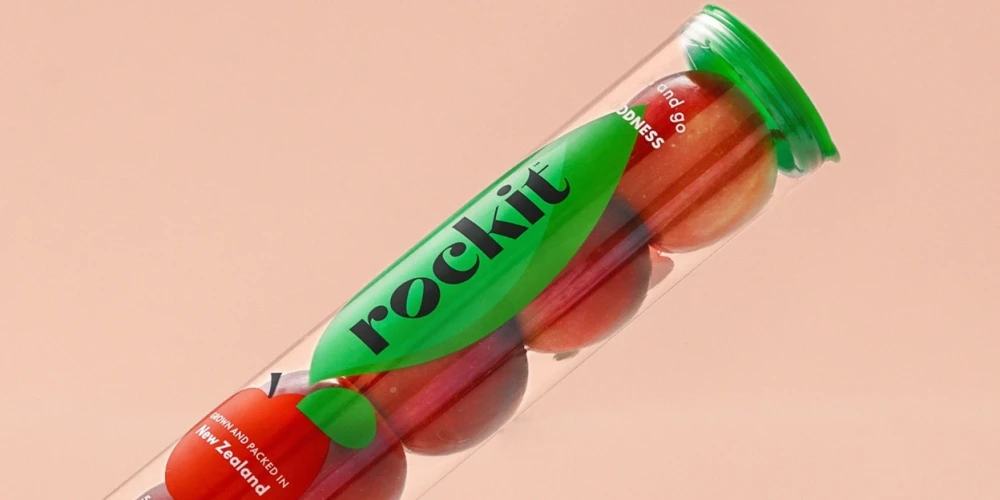
Hawke’s Bay is known as the fruit bowl of New Zealand for a reason - its long hot summers and the fertile soils of the Heretaunga Plains make it the perfect place for orcharding.
But horticulture is hardly an easy profession, and the fortunes of growers can change very quickly with the weather, the mood of the market or even what policy makers in Wellington are minded to do. In recent years they have faced severe droughts, labour shortages and a cyclone. Now many battle with recapitalising and replanting after Cyclone Gabrielle.
Callum Ross, chief executive of Hawke’s Bay Fruit Growers says it’s a challenging time with some growers struggling: margins haven’t increased in five years, costs have gone up 40% and increases in regional and city rates sit around 20%.
For some growers, this has offered the opportunity for a reset - a chance to reconsider the varieties being grown, and the growing systems used. There is a lot of exciting change in this space.
“We’re seeing some orchardists looking to diversify, planting different varieties to offset some risks, they are looking at new systems, like FOPS - future orchard planting systems - which can be quite high rows and narrow, 1.5 meters or less. That is geared up to accommodate different types of picking methods. Platforms which will help picking rates and yield substantially as well. That method has been really well looked into,” he says.
“Some orchards are doing really well and have doubled their yield; others are struggling to get plants to replant. There is still silt in some cases - I have heard stories that it is benefiting the soil in some instances depending on how thick it is.”
Below are some of the big topics growers are talking about and experimenting with that could represent big change for Hawke’s Bay over the coming years and decades.
Automation
Fully automated picking is still 5-10 years away with some companies exploring that option, but picking platforms are available, however not to every grower. Those who can access them certainly find they ease the burden of picking and increase the speed at which harvest can happen. Automated robots are also used to help transport fruit and scare birds away. “There is a bit of development around AMRs, autonomous mobile robots, used in packhouses. That will help with labour shortages,” Callum says.
“There are a lot of local companies looking at automating some processes because it is so hard to get staff. There is a company called Oxin who manufactures automated spraying and mower platforms. They are doing some great work around wineries and orchards, and they are getting some traction in Australia too”.
Varieties
Rockit stands out for its popularity in the apple market at the moment, Callum says, and offers growers great returns with a strong market in China. This variety is continually being planted, he says.
And while a lot of workhorse varieties provide a stable return, he says there is a need for new varieties of pear at the moment, as older varieties are not as popular as they used to be with changing consumer taste profiles as a result of demographic changes in the market.
“People are looking for a different type of taste globally. We export a lot of our fruit, and those markets are driven by size and taste profile.” Notably smaller and sweeter varieties in Asia.
But when it comes to pears, the market is looking for something that has a health or nutritional benefit, similar to Zespri’s new red variety of Kiwifruit. “It’s the next up and coming, Callum says.
Growing systems
Experimentation in this space seems to be happening all over Hawke’s Bay. “Among the smaller growers in the 25hectare space, there are some really interesting ones doing diversification with multiple varieties. They’re thinking about how they can be sustainable, using battery powered tractors to reduce costs, and they’re aware of the impact of things like diesel use.
“We have a couple of growers outside of Hastings who are talking about that, hi tech equipment and diversifying varieties, new methods of planting. There is also lots of talk about vertical planting and in-house systems that will mitigate some of the climate impacts we’re seeing.”
One of these approaches is inside growing - a big topic among growers at the moment. By growing in industrial scale glass houses growers can avoid a lot of disease while still getting plenty of natural light. This way of growing increases yield and reduces chemical use. Another benefit is that there are less market access issues when taking the fruit for export.
However, despite there being numerous options in this space, set up costs can be prohibitive.
Although Callum points out there are cost reductions in the system too with easier to pick fruit and less inputs. Inside growing is frequently being trialed in overseas markets as a more secure way of growing.
Another system catching on is regenerative planting. Regenerative approaches are done outside, using numerous varieties of clover to bring in bees and insects, no mowing, and an overall increase in the diversification of insects, varieties and soil microbes.
It’s closer to organic growing than conventional and improves the ability to store water in the soil.
Growers can get reductions in tractor and diesel use and a boost to soil health too. “There are a few trials using this across Hawke’s Bay, and not just in horticulture, but also agriculture,” Callum says.
“It’s offsetting costs and creating competition in the market. It’s about getting to scale with that approach and growers are seeing some great benefits coming out of that. So, we will see more of that over the next years and decades.”
Water use and precision systems.
One local company, Croptide, is leading in this space. Their technology can monitor the amount of water a tree needs and provide the minimum amount for survival. Hawke’s Bay Fruit Growers recently awarded Croptide an innovation award as a result and they are getting some attention in the global marketplace as well.
“Small growers could look at that to reduce their water use.
The other big trend in horticulture is data. Getting real-time information about what is happening on the orchard is a huge advantage for growers. It ties in with water use, and growers can get updates right to their smart phones. The advantage is knowing exactly how much is needed and when.
“Post-cyclone there is a lot of talk about what we’ve learned from that and how we can get data out of that and what you do with it - accumulating that and taking advantage of it and using it to plan and focus on the future.
“Croptide has a big focus on data and being able to access that data when you need it across various platforms – monitoring fruit quality to packhouse scanning, to tell growers exactly what is wrong with it.”
Waste and packaging.
This is an area that Callum has worked in himself for many years, and he says there is some great stuff happening to reduce plastic in the supply chain. Growers are moving towards either fully recyclable, or more sustainable options.
“Recently we’ve had to take away stickers and replace them with something compostable at a minimum and packaging is becoming more craft-like. There is definitely some innovation around packing. Trying to reduce plastic can be challenging, because plastic extends the shelf life of fruit and reduces quite high levels of food waste in the industry.”
Be the first to leave a comment.
Leave a comment
All comments are reviewed before they are published on the website. Your email address will not be published.
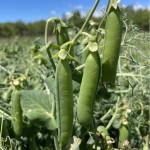
Carbon Positive Trial Update – February 2025
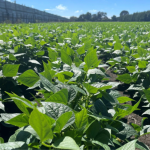
Carbon Positive Update

Community Engagement and Knowledge Sharing Strengthen the Carbon Positive Project
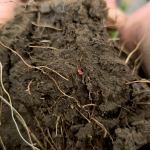
Are We Changing Soil Carbon Yet? Three Years In, the Jury’s Still Out
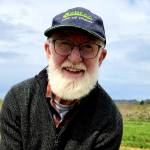
Farewell to Trustee Phil Schofield – A Foundational Leader of the HBFFCT
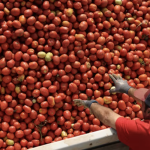

Join the conversation